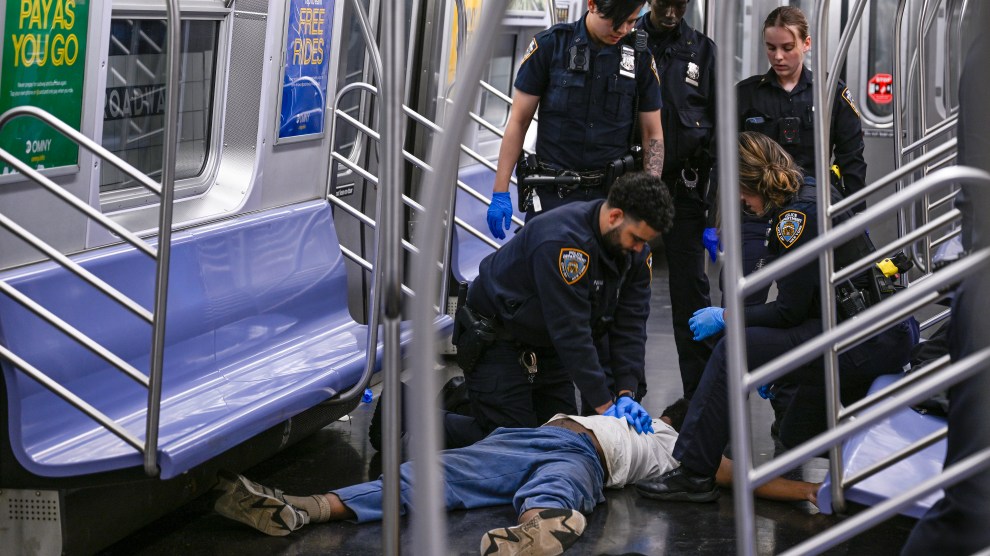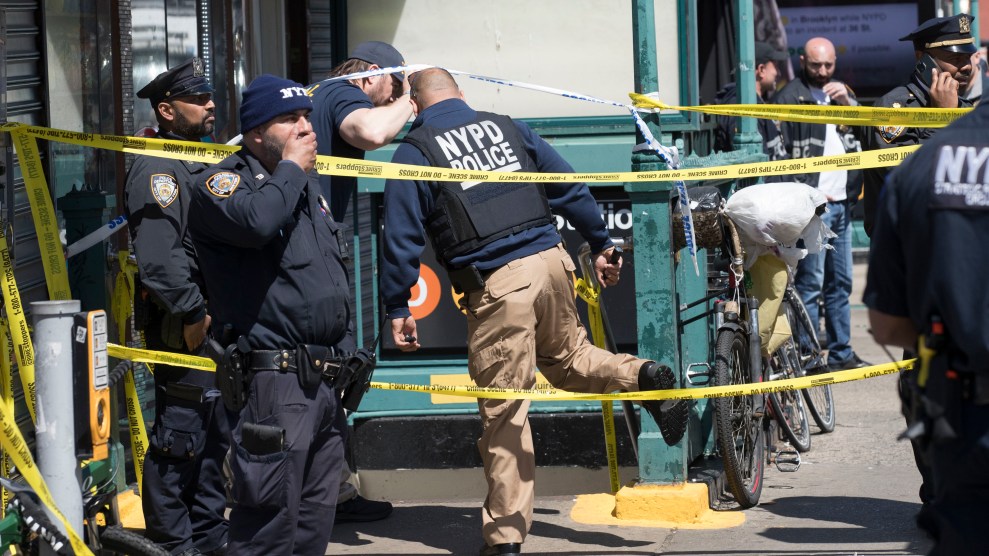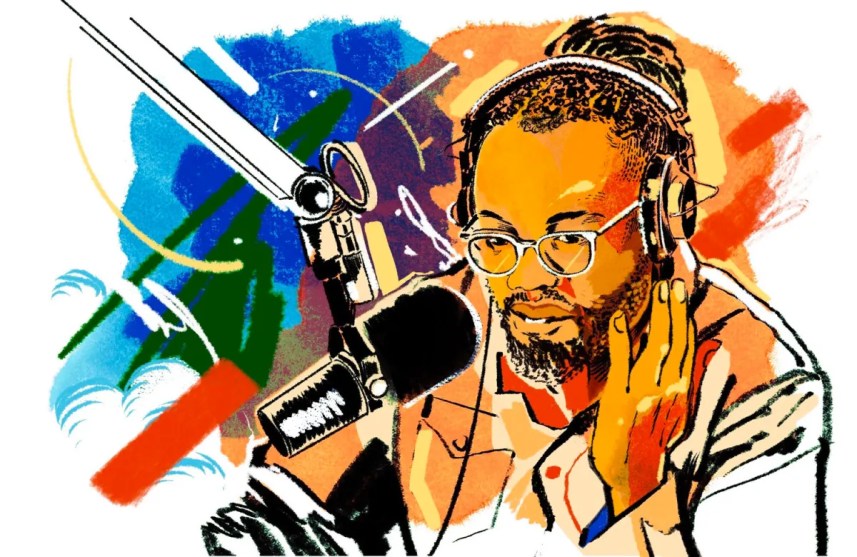
Daniel Penny awaits the jury's verdict in a New York criminal court in lower Manhattan.Andrea Renault/Zuma
Daniel Penny, a former Marine who fatally choked a man on a New York City subway in May 2023, has been found not guilty of criminally negligent homicide. The trial, which began in late October, lasted seven weeks and featured more than 40 witnesses.
The death of Jordan Neely, a 30-year-old Black man who had a history of serious mental illness, immediately became a political flashpoint. It happened amid growing fears about public safety in the subways—which New York Gov. Kathy Hochul and New York City Mayor Eric Adams pledged to address with increased police presence. To some, Penny’s actions were an admirable intervention in an all-too-common public mental health episode that threatened to endanger bystanders. Republican Arizona Rep. Eli Crane recently said that he plans to nominate Penny for the Congressional Gold Medal, telling Fox News, “Mr. Penny bravely stood in the gap to defy this corrupt system and protect his fellow Americans.”
But for many advocates, Neely’s death exemplified the city’s inability to protect its most vulnerable citizens. Neely, who was homeless, had spent years cycling through the mental health and criminal justice systems. Jawanza Williams, director of organizing at the social justice organization VOCAL-NY, said that Neely had not just been failed by the city’s social services, but also by the recent political rhetoric around homelessness.
“What happened to Jordan Neely was an indirect consequence of the way that people—in particular, Mayor Eric Adams and Governor Kathy Hochul—were talking about people experiencing homelessness,” Williams said while the trial was still ongoing. “Creating this atmosphere of fear around people on the subway, especially those with mental health conditions, dehumanized them, and it made it more likely for people to engage in violence against them.”
On May 1, 2023, Neely entered a crowded uptown F train in Lower Manhattan, declaring that he was hungry, thirsty, and ready to go to jail or die. Penny, an architecture student who served four years in the Marine Corps, was already on the train, heading to the gym. His defense lawyers would later argue that when Penny approached Neely from behind and put him into a chokehold, it was to protect others.
A freelance journalist captured a video of the several-minute-long encounter, which eventually went viral. In it, Penny can be seen lying on the train floor with his arm around Neely’s neck. Penny continued his hold until well after the subway arrived at the next station and another man grabbed Neely’s arms. A bystander can be heard urging Penny to let go, saying, “You’re gonna kill him now.” Neely became unconscious during the encounter and was later pronounced dead.
The incident sparked subway protests calling for Penny’s arrest, with some describing it as a racist act of vigilante justice. Yusef Salaam, a New York City Council member who was wrongly convicted as a teenager of the 1989 rape of a woman in Central Park, called it a “lynching in the public square.”
Penny was eventually charged with second-degree manslaughter and criminally negligent homicide. It led some prominent Republicans to rally around Penny, with Florida Gov. Ron DeSantis calling him a “Good Samaritan.” His legal defense fund raised millions.
Neely was once a Michael Jackson impersonator, dancing in costume on the subways. His early life was marked by tragedy—his mother was murdered when he was 14—and he was eventually diagnosed with schizophrenia. Reporting from New York magazine tracked Neely’s descent into drug use and homelessness. Outreach workers became familiar with Neely, who was at one point on the city’s list of homeless people in the most dire need of services. Along with a series of minor charges, Neely had also been accused of assault—including an instance when he punched a woman on the subway.
At the trial, prosecutors laid out a narrow path toward conviction. Assistant District Attorney Dafna Yoran said in her closing statement that it was “laudable” for Penny to intervene initially, describing Neely as behaving in an “extremely threatening manner.” But, prosecutors argued, Penny’s actions became unlawful when he continued the chokehold after Neely was subdued and passengers had exited the train.
Defense attorneys have emphasized Penny’s character—his platoon sergeant agreed during testimony that he was “calm and peaceful”—and argued that he did not mean to kill Neely. Penny’s lawyer Steven Raiser said that Penny had applied the chokehold in a “less aggressive” way because he did not intend for Neely to lose consciousness. They have also tried to cast doubt on findings from the city’s medical examiner, who determined that Penny’s hold had killed Neely. The defense’s forensic pathologist testified that a genetic condition and the use of synthetic marijuana contributed to Neely’s death.
“The government is scapegoating the one man who was willing to stand up at the moment he was needed,” Raiser said during his closing statement.
After nearly three days of deliberation, the jury was unable to come to a consensus on the most serious charge of manslaughter. On Friday, the judge dismissed the manslaughter charge to allow them to move to deliberate the charge of criminally negligent homicide. The acquittal came just hours after the jury reconvened on Monday.
Last week, while the criminal trial was ongoing, Neely’s father, Andre Zachary, filed a wrongful death suit against Penny. “It really, really hurts,” Zachary told reporters outside of the courthouse after the verdict was announced, according to the Associated Press. “I had enough of this. The system is rigged.”

















